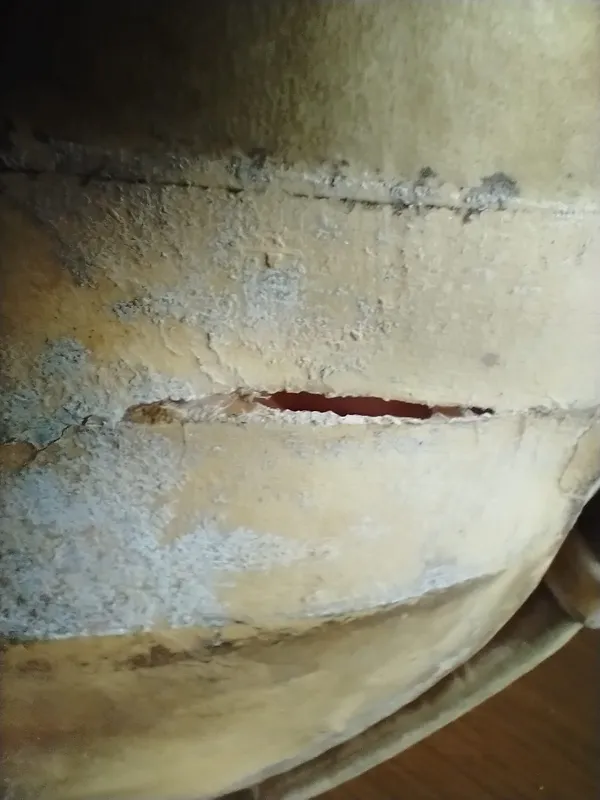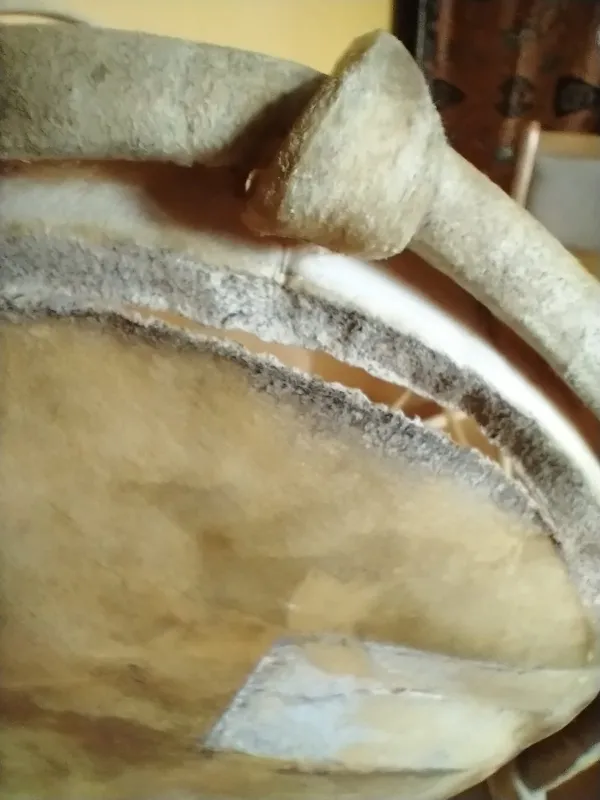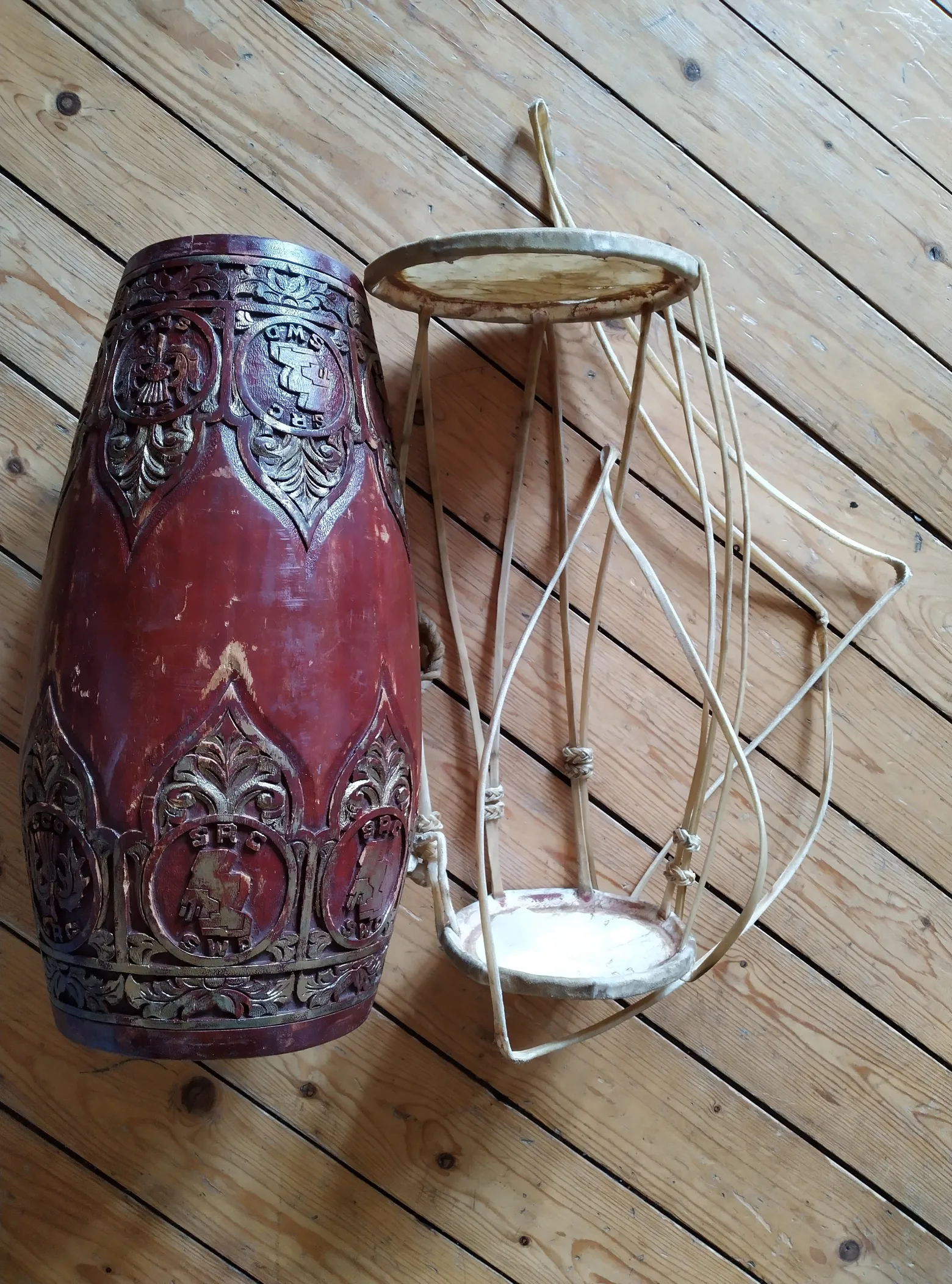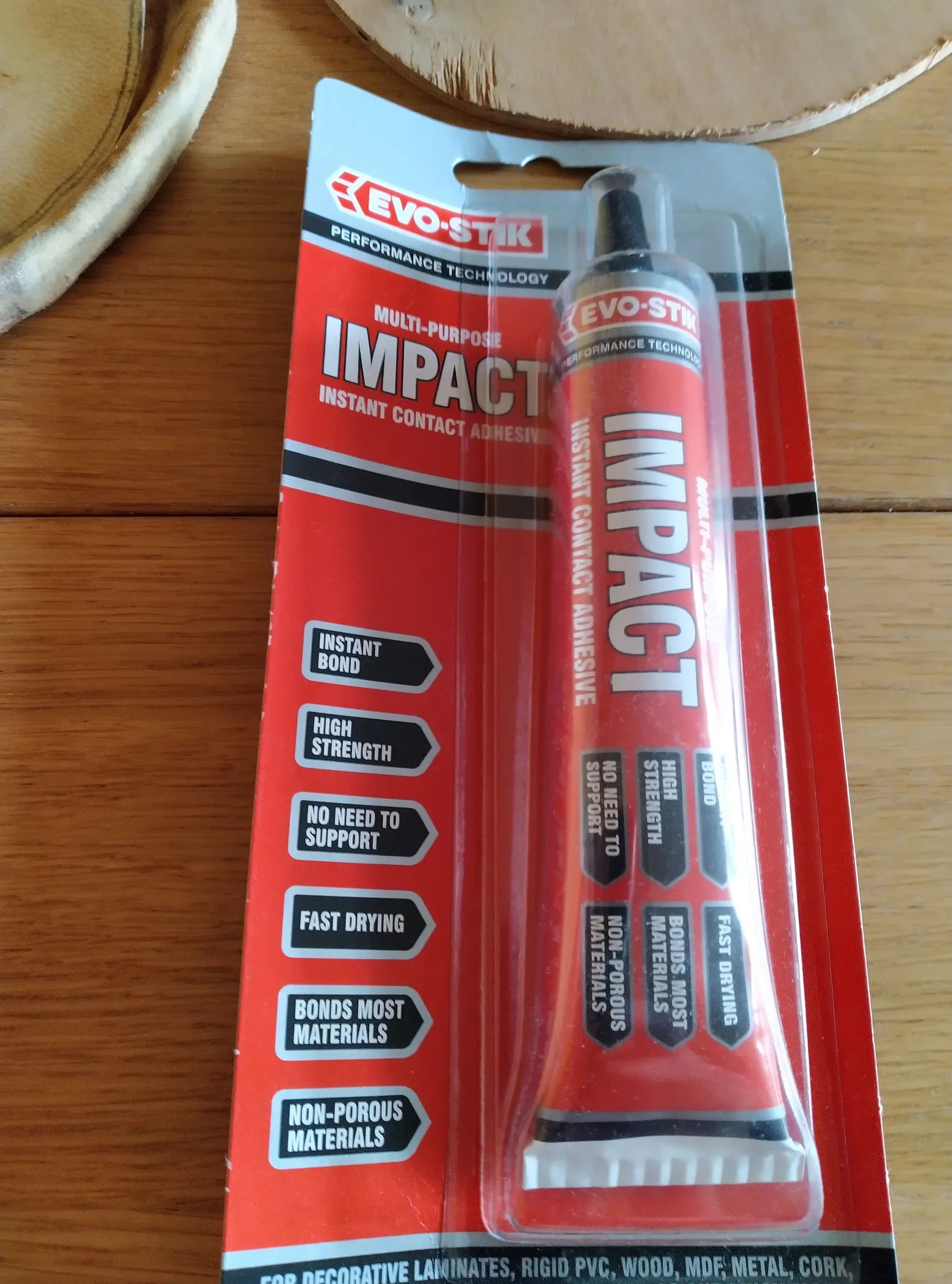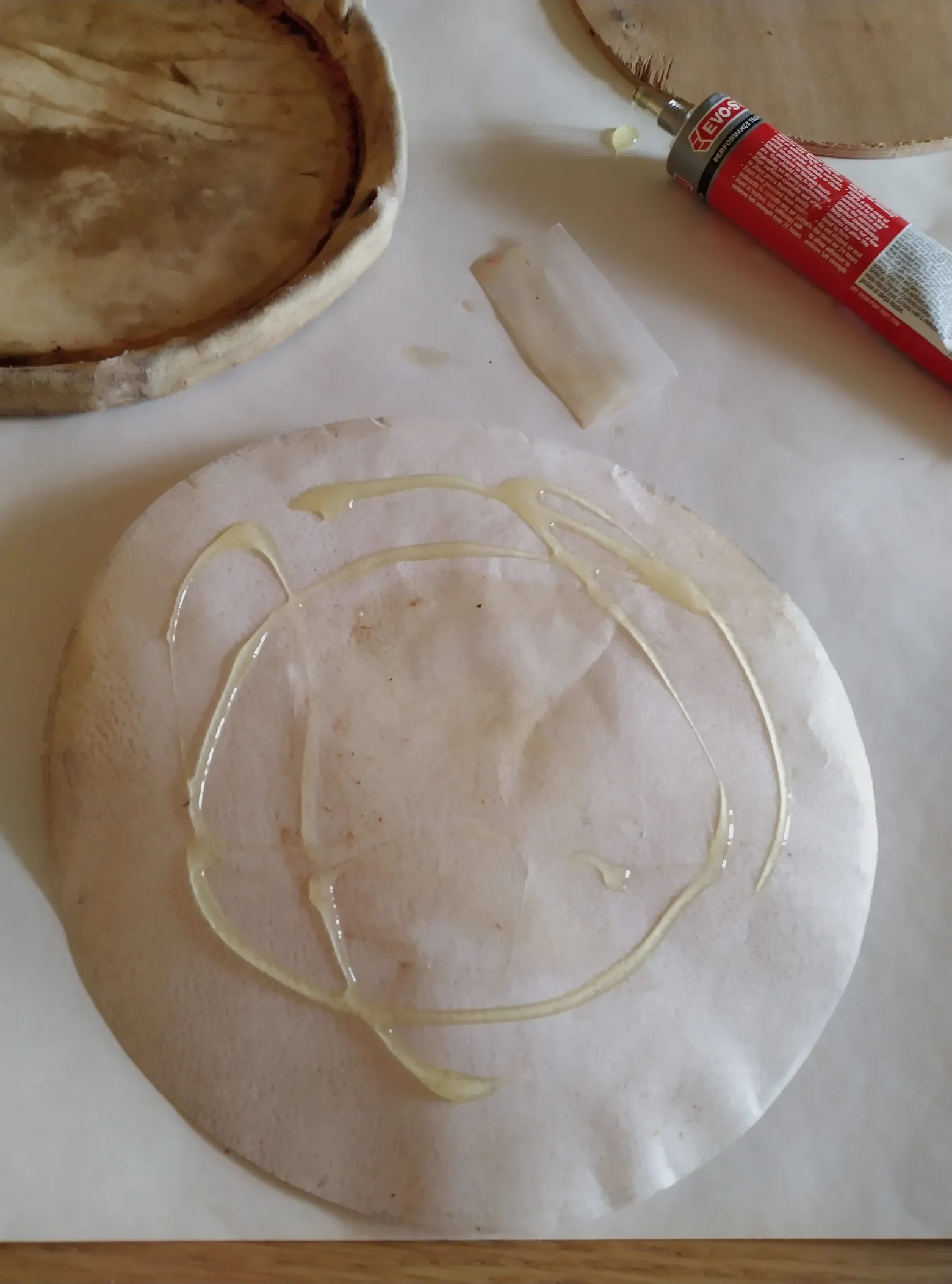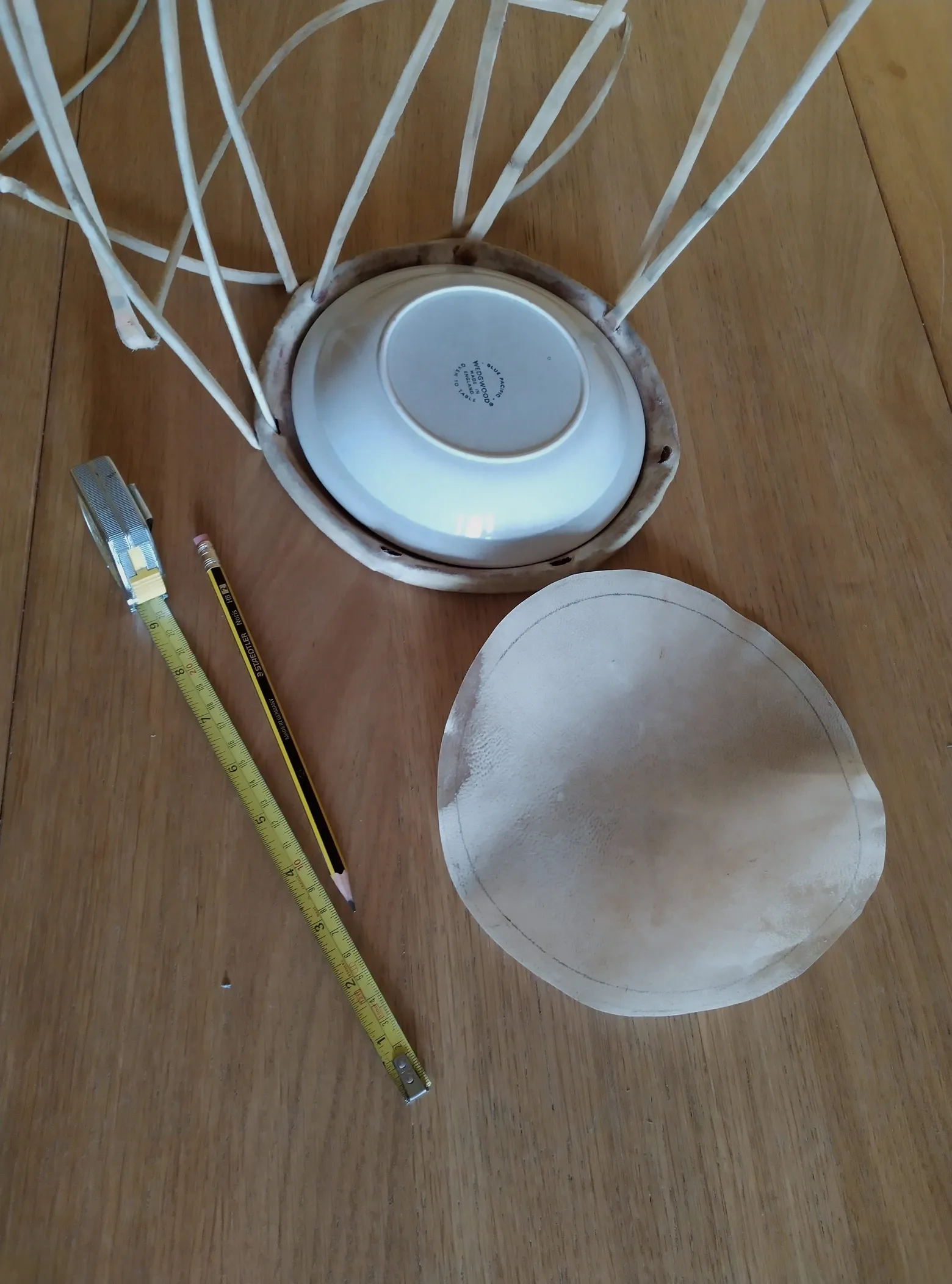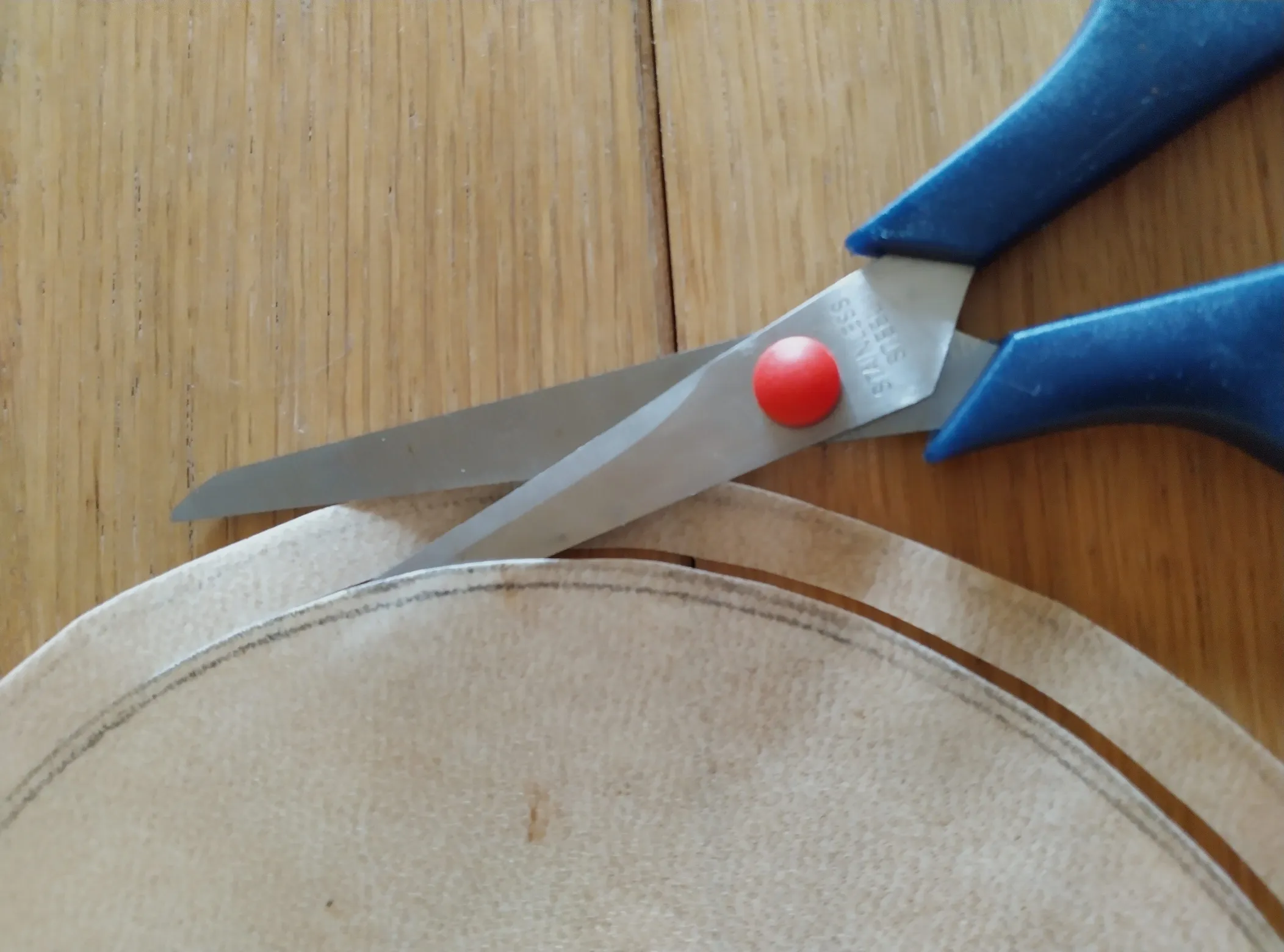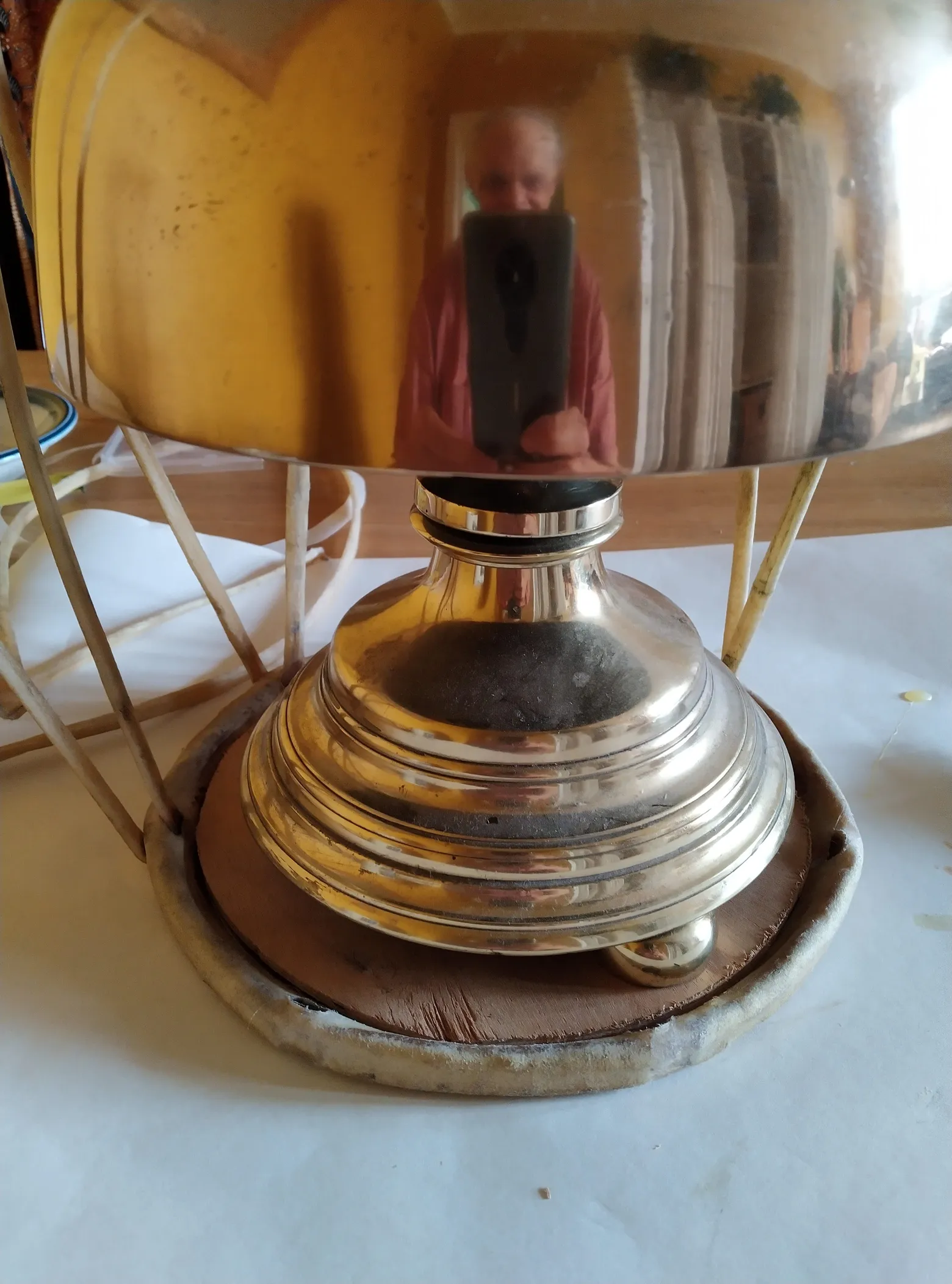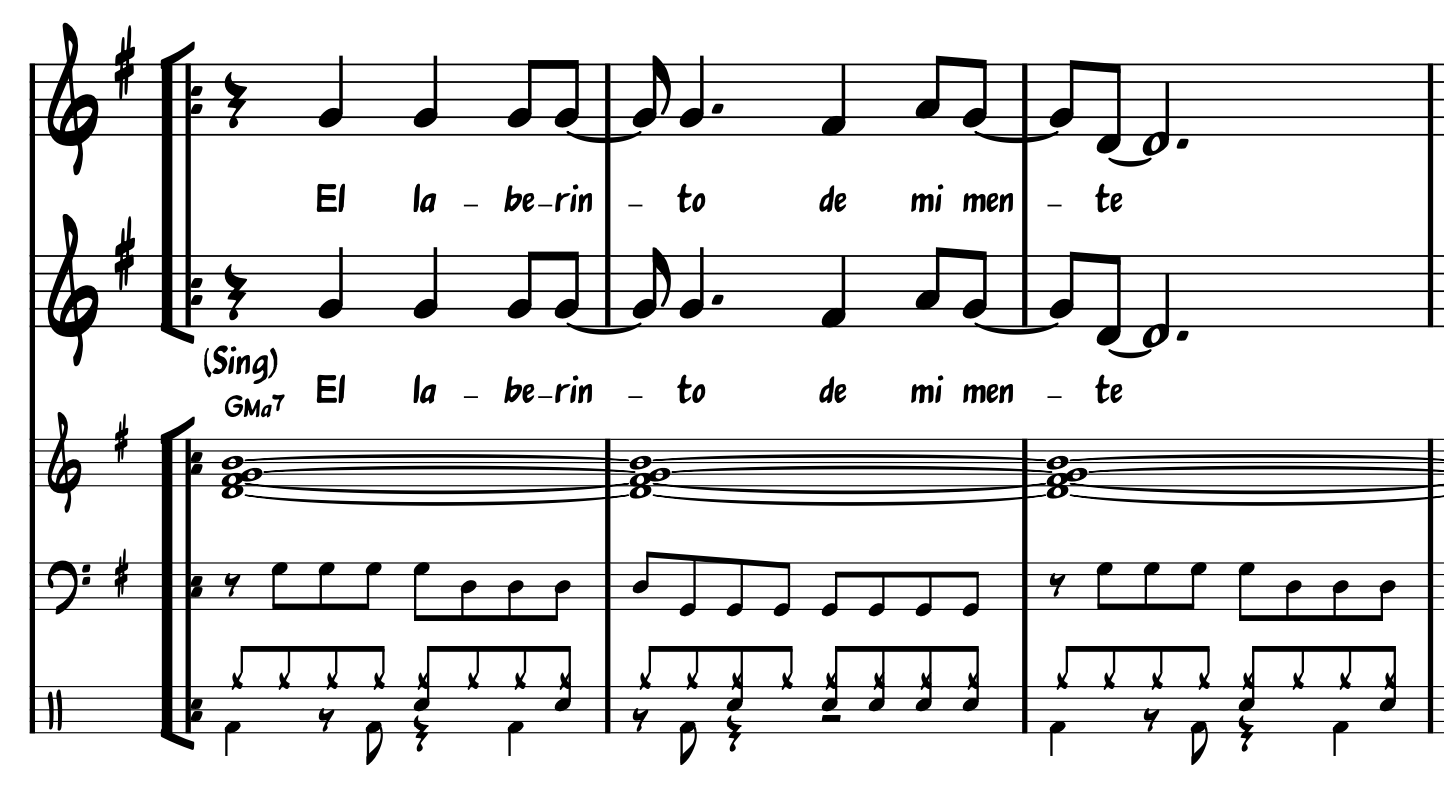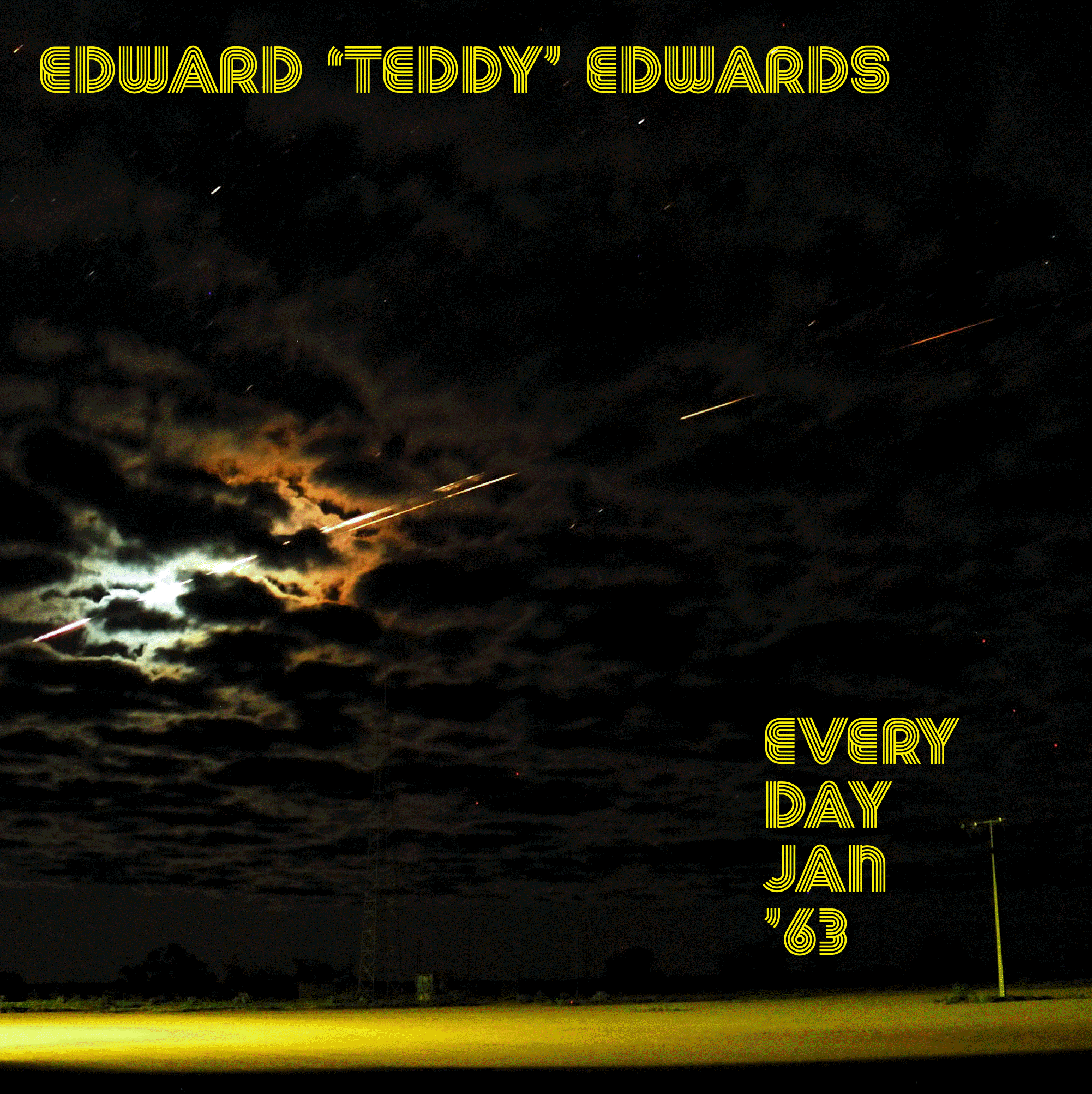The 'ketipung' is the smaller of a pair of drums that are used together in the Javanese gamelan.
The original ketipung that came with our gamelan was damaged many years ago. For as long as I have been with the group it has had a 3cm gash in the larger head, and also a similar size split around the edge:
Covered up with gaffa tape the drum was still more or less playable, but far from ideal.
A good number of years ago now we were able to source a replacement drum from Indonesia, and this one has languished in the cupboard. I decided it was time to have a go at a proper repair!
My plan was to dismantle the drum and attempt a glue and leather patch from the inside of the head. This seemed simpler than trying to make an entirely new head: wiser heads than mine advised that this was a much tricker job than it looked!
First step was to get the drum dismantled. This involved soaking the whole thing in a bath for an hour or so, which loosened up the leather thongs enough so that I could release three of them and take them off the drum:
I sourced an 8 inch circle of shaved goatskin online from a supplier of djembe/bodhran heads. The existing heads are water buffalo, but from previous experience with another drum, I felt that the much thinner goatskin would be good for the patch.
After a lot of reading around about glue options – pva? latex? cyanoacrylate? diisocyanate? – I decided on contact adhesive, which was recommended in many places by people who work with leather. I decided to trust a well-known household brand that I was familiar with, rather than order a specialist product:
By good chance, I found a bowl of the exactly the right size for me to mark and then cut down the goatskin to fit. I followed the glueing instructions carefully, in particular making sure to allow enough time for it to be touch dry.
According to the instructions the bond is instant and requires no support, but I decided to bodge together a disc of plywood and the heaviest thing I could find in the house (an old alter bell) to hold it together while curing.
Ok, let's come back tomorrow and see how we did!
